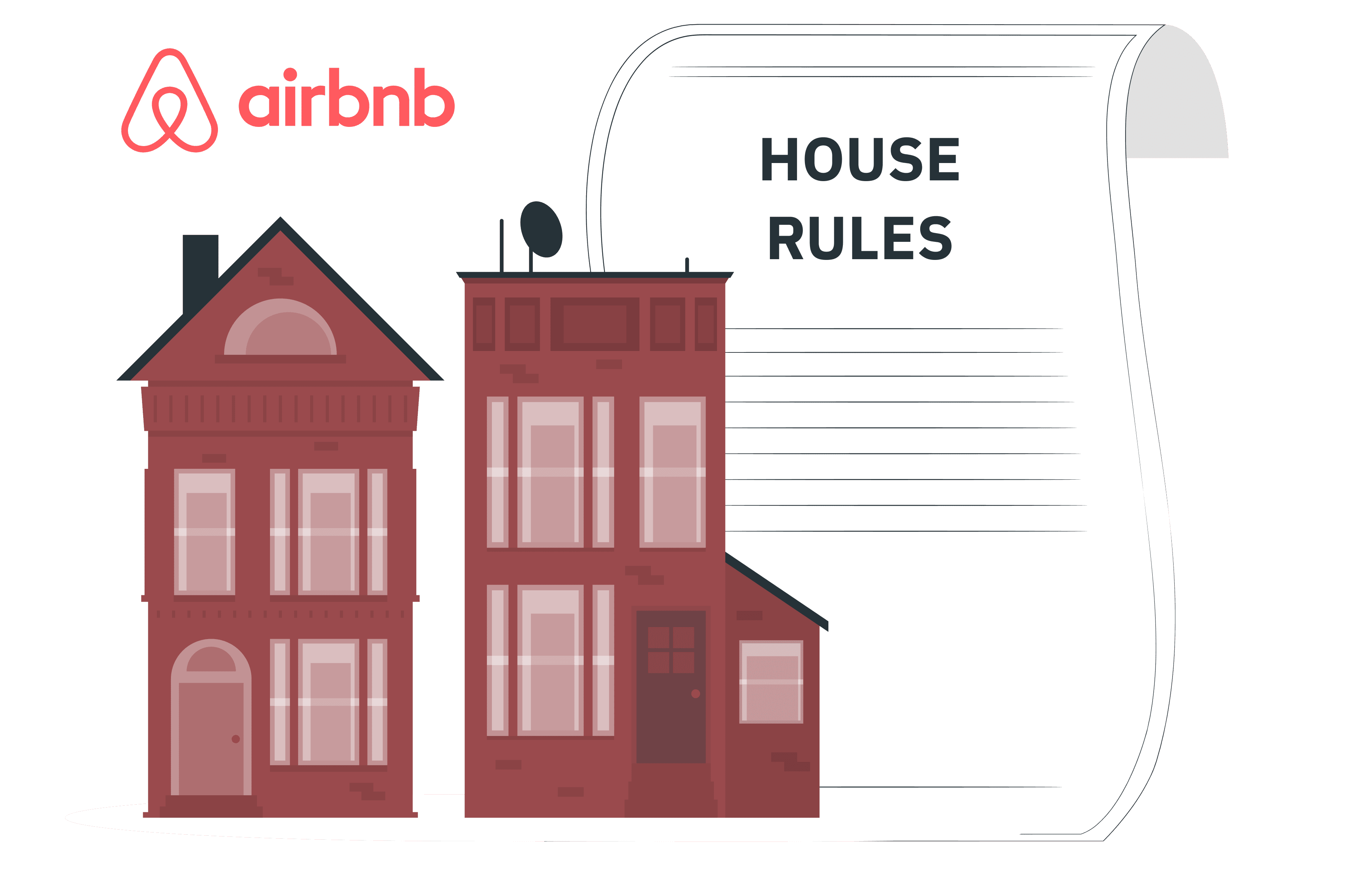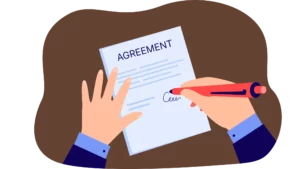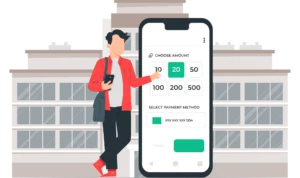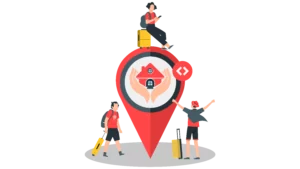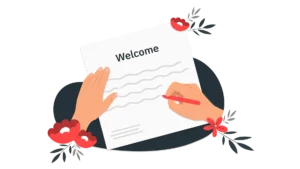Starting your Airbnb Business may seem tough but it is what follows once your business is running that can be intimidating. The best Airbnb hosting tips suggest being responsible for creating a safe, comfortable experience for your guests. This included being attentive to your guests’ needs, keeping your property in good shape, and maintaining seamless communication from the day of booking to the check-out date.
So, to ensure smooth sailing and avoid unpleasant surprises, you must lay down some ground rules before your guests arrive. Once you know how Airbnb works and have received your booking, your Airbnb house rules set the stage for your guests’ stay. They eliminate confusion, protect your space from accidents, make everyone feel secure, and offer you legal protection.
Here is what you need to know before you set your house rules, plus a free template to help you get started.
Tips to Define Your Airbnb House Rules
1. Identify your priorities
List the top five things that matter the most to you as a property owner. For example;
Guest Safety:
- Implementing security measures such as surveillance systems.
- Ensuring proper lighting in common areas.
- Regular maintenance to address potential safety hazards.
Regulatory Compliance:
- Staying informed about and adhering to local short-term rental restrictions.
- Obtaining necessary permits and licenses.
- Keeping up with zoning and land use requirements.
Property Maintenance:
- Regularly inspect and maintain the property’s structural integrity.
- Addressing repairs promptly to prevent further damage.
- Landscaping and maintaining the overall aesthetic appeal.
Amenities Management:
- Ensuring that amenities (e.g., swimming pools, gyms) are well-maintained and safe.
- Ensuring your internet broadband is working well.
- Establishing guidelines for amenity usage.
- Regularly updating amenities to meet guest expectations.
Financial Sustainability:
- Managing property finances efficiently.
- Setting reasonable rental prices to attract tenants or guests.
- Monitoring and controlling operational costs.
2. Identify specific property needs
Tailor your house rules to the needs of your Airbnb. Suppose your property has a pool. You must define clear rules about pool usage, such as pool hours, safety guidelines, best practices, supervision for children, etc.
3. Focus on the guest experience
Your Airbnb house rules should prioritize the comfort, safety, and security of your guests and your property. So, you must include rules that address quiet hours, proper appliance usage, door and window security, and other safety measures.
4. Keep rules clear, specific, and concise
Write your rules with clarity and specificity to avoid misunderstandings. It’s better to have a few essential, easy-to-understand rules than a long list of confusing ones!


5. Follow local regulations
Understanding and adhering to local short-term rental restrictions and regulations is crucial for property owners operating on platforms like Airbnb. These regulations vary widely depending on the city, municipality, or neighborhood. Here’s an expanded explanation of why it’s important and how to go about it:
- Research Local Regulations: Conduct thorough research on local laws, zoning ordinances, and regulations pertaining to short-term rentals in your area. These may include rules set by the city, county, or homeowners’ association.
- Zoning Laws: Check the zoning regulations to ensure that short-term rentals are permitted in your area. Some zones may have restrictions on the duration or frequency of rentals.
- Permitting Requirements: Identify if there are any licensing or permitting requirements for short-term rentals. Some jurisdictions may require hosts to obtain a permit or license to operate legally.
- Occupancy Limits: Be aware of any restrictions on the maximum number of guests allowed in a short-term rental property. Local regulations may specify occupancy limits based on the size of the property.
- Taxation: Understand the local tax requirements associated with short-term rentals. Hosts must collect and remit occupancy taxes or similar fees in many places.
- Safety and Building Codes: Ensure that your property complies with safety and building codes. This may include fire safety measures, health standards, and other regulations that ensure guests’ well-being.
- Noise Restrictions: Check for any noise ordinances that may impact short-term rentals. Some areas have specific rules regarding quiet hours or acceptable noise levels, which you should communicate to your guests.
- Neighbor Relations: Be mindful of maintaining positive relations with neighbors. Local regulations might include provisions for minimizing disturbances, and being considerate of your neighbors can help prevent issues.
- Environmental Regulations: Some areas have specific environmental regulations that host need to adhere to. This could include waste disposal guidelines or energy efficiency requirements.
- Stay Informed and Updated: Regulations can change, so staying informed about any updates or amendments to local laws affecting short-term rentals is essential. Subscribe to relevant newsletters or join local hosting groups to stay in the loop.
- Incorporate Compliance in House Rules: Once you understand the local regulations, ensure that your house rules explicitly reflect compliance with these rules. This may include informing guests about occupancy limits, quiet hours, and other pertinent regulations.
- Communicate Proactively: Clearly communicate the rules and regulations to your guests before and during their stay. This transparency helps set expectations and demonstrates your commitment to legal compliance.
6. Adapt rules based on guest feedback
Pay attention to feedback from previous guests and use it to refine your house rules. For example, if you notice any areas where guests need clarification, consider rewriting them in an easier-to-understand format.
Read More: 15 Airbnb Hosting Tips To Make Your Listing Successful
Airbnb House Rules Examples
- Pool hours are from 9:00 AM to 9:00 PM. No glass containers are allowed in the pool area. An adult must supervise children at all times.
- Quiet hours are from 10:00 PM to 7:00 AM. Please keep noise levels to a minimum during this time to ensure a peaceful environment for all guests.
- Smoking is not allowed inside the property or on the balcony. Please use designated smoking areas outside and dispose of cigarette butts properly.
- Check-out time is 11:00 AM. Early check-in or late check-out requests must be made in advance and are subject to availability. Unauthorized late check-outs may incur additional fees.
- Pets are not allowed on the premises. Airbnb service animal rules don’t apply here. Any violation of this rule will result in a cleaning fee.”
- One designated parking space is provided. Please park only in the assigned space. Additional parking is available on the street if needed.”
- The maximum occupancy is four guests. Visitors are allowed until 10:00 PM. Please inform us in advance if you plan to have additional guests.“
- Please dispose of trash in the bins provided. Trash collection is on [specified days]. Do not leave trash in common areas or outside the property.”
- Use appliances (stove, oven, etc.) as the manual instructs. Report any malfunctions promptly. Do not leave appliances unattended while in use.”
- Complimentary Wi-Fi is provided. Please use it responsibly. Do not download or stream illegal or inappropriate content. Excessive usage may result in additional charges.”
Airbnb House Rules Template
You can use this 4-part template as a starting point and customize it per your needs.
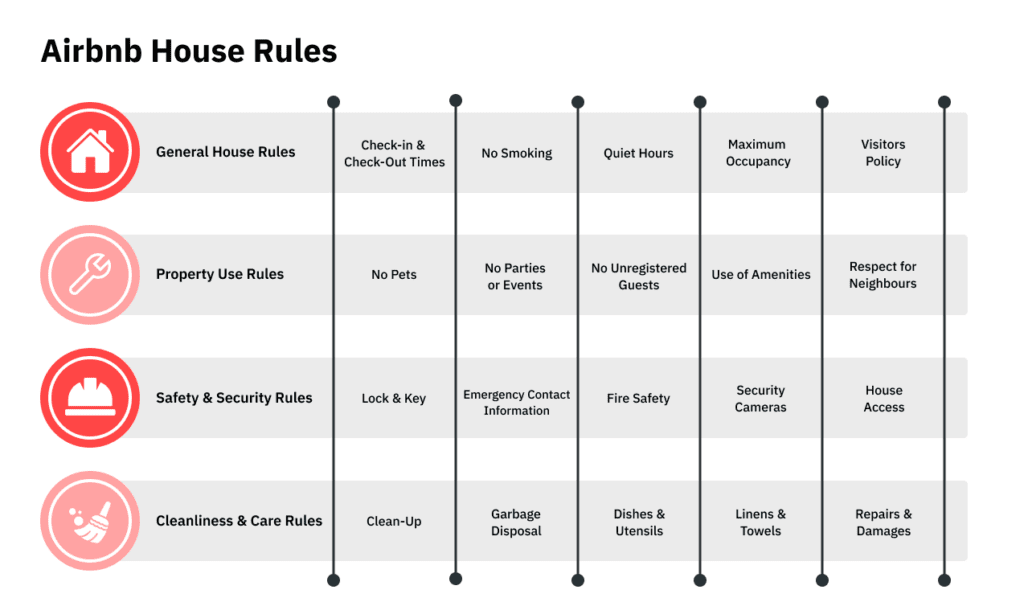

1 – General House Rules
- Check-in and Check-out Times: Specify when guests can check in and out.
- No Smoking: Designate your property as a non-smoking space.
- Quiet Hours: Set quiet hours to ensure a peaceful environment.
- Maximum Occupancy: Specify the maximum number of guests allowed.
- Visitors Policy: Clarify if guests can have visitors and under what conditions.
2 – Property Use Rules
- Pets: State whether or not pets are allowed on your property.
- No Parties or Events: Prohibit parties and events in your space.
- No Unregistered Guests: Specify that only registered guests are allowed.
- Use of Amenities: Explain how guests can use amenities like the kitchen, laundry, and more.
- Respect for Neighbors: Request that guests be considerate of the neighbors.
3 – Safety and Security Rules
- Lock and Key: Instruct guests on locking up when leaving and returning.
- Emergency Contact Information: Provide emergency contact details.
- Fire Safety: Explain fire evacuation routes and safety measures.
- Security Cameras: Disclose the presence of security cameras, if applicable.
- House Access: Describe how guests can access the property, e.g., key codes.
4 – Cleanliness and Care Rules
- Clean-Up: Request that guests leave the space tidy.
- Garbage Disposal: Explain where and how to dispose of trash.
- Dishes and Utensils: Specify if guests should clean up after using dishes.
- Linens and Towels: Indicate whether guests should strip beds before check-out.
- Repairs and Damages: Clarify the guest’s responsibility in case of damage.
10 Ways To Enforce Your Airbnb House Rules Effectively
Here are ten tips to help you maintain a positive hosting experience while enforcing your house rules effectively.
- Clear Communication: Communicate rules to guests.
- Welcome Message: Politely emphasize rules in your welcome message.
- House Manual: Provide a detailed manual with rules.
- Security Deposit: Set a security deposit to deter rule violations.
- Prompt Response: Address issues quickly and professionally.
- Guest Feedback: Encourage feedback on rule adherence.
- Honest Reviews: Reflect guest behavior in your reviews.
- Documentation: Keep records of rule violations.
- Warnings: Give warnings before taking strong actions.
- Airbnb Support: Contact support if needed for rule violations.
How do you add house rules to your Airbnb listing?
Here is a quick step-by-step process for adding house rules to your Airbnb listing:
1: Log in to your Airbnb Account
2: Go to “Manage Your Listings” and choose your listing
3: Select “Edit Listing” and go to the “House Rules” Section
4: Add your house rules
5: Review and confirm the changes
And you’re done! Your house rules will now be visible in your Airbnb listing, allowing guests to see them before booking. To learn more, check out this detailed guide by Airbnb.
Where should you display your house rules?
1) Display them with your listing
You can create or update your house rules in the “House Rules” section on Airbnb using the steps given above. Additionally, you can also include a house manual in your Airbnb listing containing detailed information about your house rules. You can include additional information like instructions and local recommendations. Your guests can access this manual before and during their stay.
If you want to highlight important rules immediately, you can also include them in the description of your listing. This provides an overview of your rules for potential guests considering booking.
2) Send them to your guests
After a guest books your property, you can send them a booking confirmation message with a summary of your house rules. This serves as a reminder and allows guests to review the rules before their stay. Or, you can include them in a welcome message along with any Airbnb add-on service you offer, which you can send them a few days before their check-in date.
3) Display them around your property
If you have specific rules that need immediate attention, such as a “No Smoking” rule or a reminder about quiet hours, you can also consider posting signs on your property to reinforce those rules.
About PriceLabs
PriceLabs is a revenue management solution for the short-term rental and hospitality industry, founded in 2014 and headquartered in Chicago, IL. Our platform helps individual hosts and hospitality professionals optimize pricing and revenue management, adapting to changing market trends and occupancy levels.
With Dynamic Pricing, automation rules, and customizations, we manage pricing and minimum-stay restrictions for any portfolio size, automatically uploading prices to preferred channels.
Every day, we price over 275,000+ listings globally across 125+ countries, offering world-class tools like the Base Price Help and Minimum Stay Recommendation Engine. Choose PriceLabs to increase Airbnb revenue and streamline pricing and revenue management. Sign up for a free trial at pricelabs.co today.
Frequently Asked Questions
1. How do I set house rules for my Airbnb listing?
Log in to your Airbnb Account and click on Hosts->Manage Listings. Choose your listing and select “Edit.” Go to the “House Rules” section and add your rules. Once you’re done, review your rules. And save changes. After saving your changes, Airbnb will confirm that your listing has been updated with the new house rules.
2. How can my guests see my house rules before booking?
If you have added your house rules to your Airbnb listing, your guests can view them in the “House Rules” section before booking.
3. Can a host change house rules after booking?
Yes, as a host, you can change your house rules even if guests have booked your property. To ensure a positive experience, you must notify your guests and provide a clear reason for rule changes.


